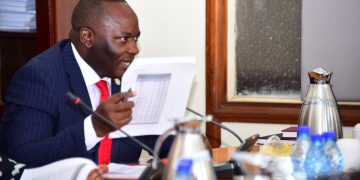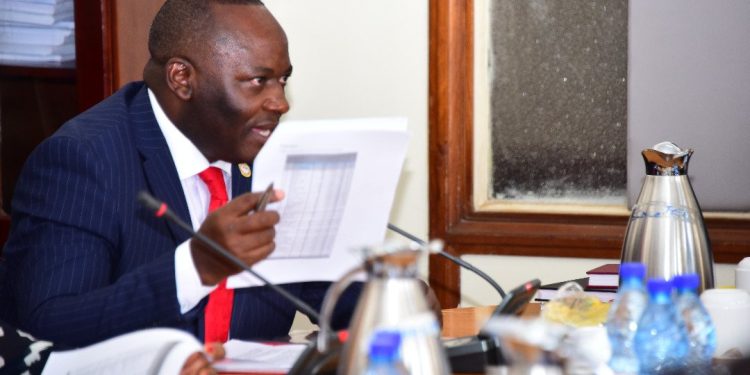The Leader of the Opposition, Hon Mathias Mpuuga, has proposed a reduction in electricity tariffs for domestic consumers by at least Shs200 per unit.
Mpuuga said that the current Shs882 per kilowatt-hour is so high and has led to the decline in the consumption of electricity.
He was presenting the Opposition’s views on the Electricity (Amendment) Bill, 2022 before the Committee on Environment and Natural Resources on March 3, 2022 at Parliament House.
“I have come to remind you that fixing the domestic tariff is the only way to save our forests and the environment,” said Mpuuga.
He added that value addition under the much-hyped Parish Development Model will depend on how Parliament ‘touches’ on the tariff methodology to provide relief to domestic consumers’ category.
To ensure reduced tariffs for end-users, especially domestic consumers, Mpuuga proposed that technical losses be removed from the tariff methodology.
“If a distribution company did not make any profit on account of the technical losses on their books of accounts for any particular financial year, the Energy Development Fund shall cover the gap,” he said.
The LOP further proposed an amendment which excludes distribution technical losses from the electricity distribution tariff, which he said will lead to an automatic reduction of at least 8.8 percent of the tariff for domestic and commercial consumers’ category.
He also proposed the replacing of the Rural Electrification Fund with the Electricity Development Fund, with funding largely derived from excess revenue generated from the sale of electricity by generation, transmission and distribution companies.
“Creation of the fund will help to ring-fence financing for energy infrastructure like the transmission and distribution grid, network infrastructure and insurance cover for distribution companies who may in some years fail to absorb distribution technical losses,” Mpuuga said.
According to Mpuuga, the move would boost demand for electricity leading to a further reduction in the distribution tariff and ultimately, raise the profitability of distribution companies as they sell more units of electricity.
Committee chairperson, Dr Emmanuel Otaala, agreed with the proposal to lower tariffs, saying that all Ugandans have a right to access and use electricity.
“Ugandans should enjoy affordable electricity. Currently the rates are high. I believe that when the dams which are under construction are commissioned, tariffs will reduce further,” said Otaala.
Hon Alex Ruhunda (NRM, Fort Portal Central Division) commended the LoP for linking electricity tariffs with environment conservation, saying that Ugandans are destroying forests to burn charcoal because they cannot afford electricity.
The Sheema Municipality MP, Dickson Kateshumbwa, said that commercialisation of electricity is to blame for high tariffs.
“If electricity distribution companies are only looking for profits, they will not extend electricity to the poor Ugandans and by so doing, they will be denying them power. It is the government’s responsibility to put an end to the commercialization of electricity,” he said.
The proposal to amend the Electricity Act, Cap. 145 is intended to remove inconsistencies in the law to introduce flexibility in its implementation and to streamline operations of the electricity sector.









